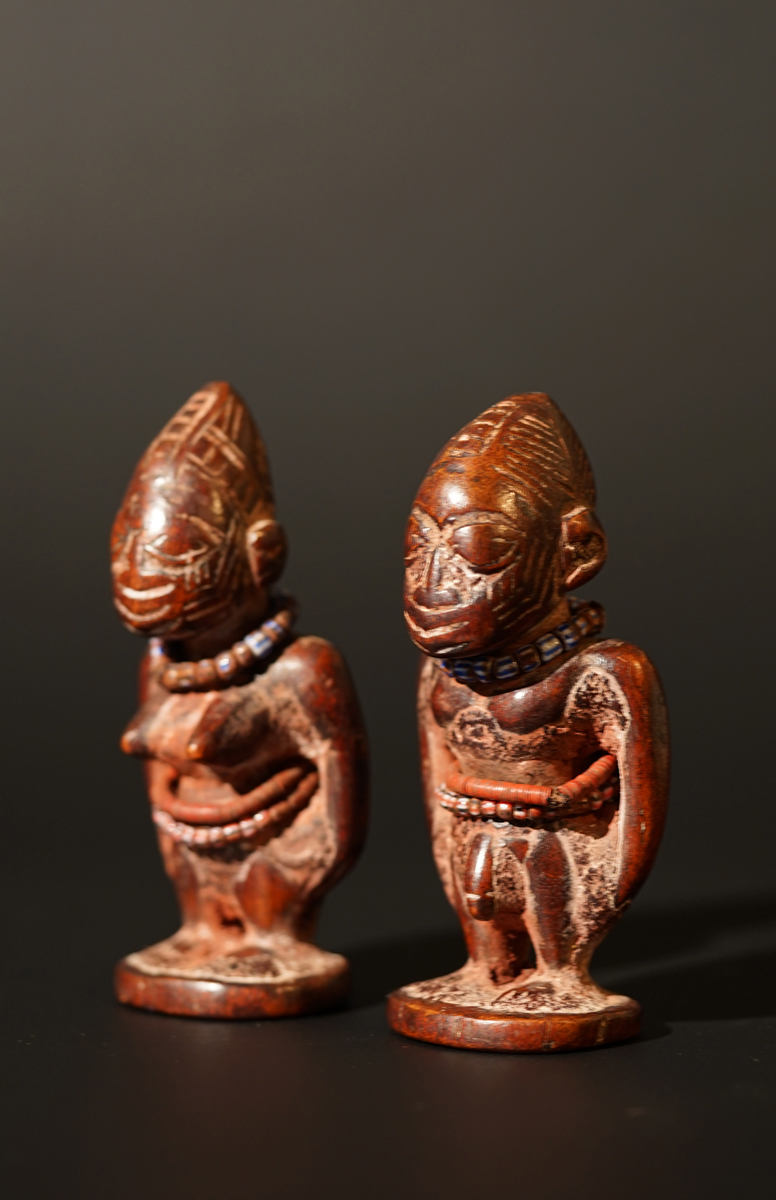 |
A small Ibedj couple, decorated with rows of small, colourful pearls.
The Yoruba have one of the highest rates of twining in the world—it is estimated that out of every 1,000 births, 45-50 result in twins. Twins are revered among the Yoruba and come into this world with the protection of the orisha (deity) Shango who is evoked at the baby’s naming ceremony when he or she is a few months old. Due to the low birth weight of twins and the high infant mortality rates in Nigeria, many twin babies do not live long. If a baby dies during childbirth, in the months leading up to the naming ceremony, the parents will seek consultation with an Ifá diviner, a Babalawo. If the Babalawo ascertains a spiritual cause, he will help the parents find a carver to create an Ere ibeji figure. An Ere ibeji is a wooden carving of a male or female figure once used by the Yoruba. The figure is thought to be a focal point for the spiritual energy of the deceased twin who, according to Yoruba traditional thought, resides in the supernatural realm where he/she is cared for by a spiritual mother.
Families, particularly grieving mothers, take comfort in the belief that a spiritual mother is caring for and guarding the departed child. The Ere ibeji is ritually washed, fed, clothed and carried in a cloth wrapper on the mother’s back as a real baby would be carried. The Ere ibeji might also be decorated with camwood powder, blue paint, beads, shells, and precious textiles. But despite the fact that this carving can serve as a receptacle for the spirit of the dead child, Ere ibeji figures do not look like children. These figures are carved to represent an ideal type within the Yoruba criteria of beauty and in the prime of life—neither a child nor an old person.
The carving style emphasizes the conical head, an elaborate hairstyle, a roundness of the eyes and facial features, and a balanced composition between the body parts. Each of these features references a moral virtue or inner goodness all children should cultivate. Ere ibeji carvings reveal not only the importance of twins and a strong belief in the afterlife, but what Yoruba regard as beautiful and correct."
Essay by Dr. Peri Klemm.
sold
Height: 14 cm / 13 cm
Weight: 100 g / 110 g |
 photo: tribalartforum.com/ identification no. BSC02668.jpg
photo: tribalartforum.com/ identification no. BSC02668.jpg |
|